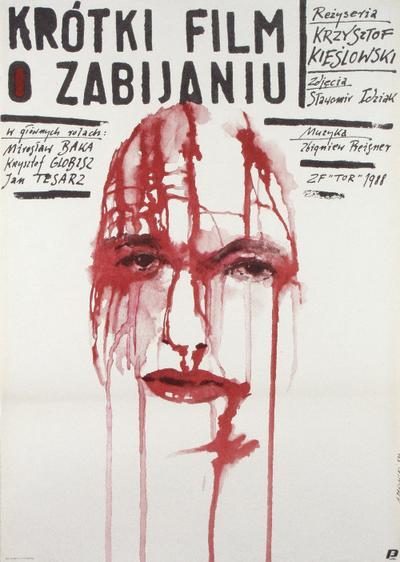![]()
![29f7c043f76a2bde437fd0d52a185152]()
Quote:
The Walter Reade Theatre at Lincoln Center in New York City’s retrospective – History Lessons: The Films of Jerzy Kawalerowicz, 30 January to 12 February 2004, screened the major work of this Polish director whose career spanned 50+ years. The programme offered, amidst the veteran’s varied output, a very special, culture vulture/archaeologist’s dream: Pharaoh (aka: Faraon), co-scripted by Kawalerowicz with Tadeusz Konwicki, and based on a novel by Boleslaw Prus. The best cinematic recreation of circa 1100 BC Late New Kingdom Dynastic Egypt ever, photographed on location at authentic sites and environs, the production design, costumes and props were all meticulously researched.
The story, based on actual historic events, concerns an invented ruler Ramses XIII (Jerzy Zelnick) – actually there were 11 Ramses in the archaeological record – plunked into the drama experienced by Ramses XI. While still Crown Prince, handsome, athletically built Ramses yearns to stem the gradual decline of Egypt’s empire and to reform the miserable lives of the huge peasant and labouring classes. Young Ramses’ plans, abiding until his rapidly ailing, aged father Ramses XII’s (Andrej Girtler) death, greatly displease the powerful, numerous sacerdotal caste, particularly its most influential elder, an actual personage – the Sun God Amon-Ra’s high priest Herihor (Pietr Pawlowski), the real, long-term power behind the throne.
Spicing up the political power versus growing, corrupt theoretical influence plot (which really happened), the script adds a romantic element involving Ramses taking as a mistress, Sarah (Krystyna Mikolajewska), a sweet-natured, lovely, naïve Jewish woman. Later, a Phoenician priestess of Astarte, the sultry Kama (Barbara Brylska) gets sent by enemies of the Crown Prince to seduce him, thereby sowing discord in his household. More complications involve threats of war with the Assyrians. Midway through this narrative, the old king dies and the protagonist gets crowned Ramses XIII. His struggle to assert his power brings the conflict with the religious factions into the open, creating tragic consequences building to a shattering, abrupt climax.
The fascinating tale of two vivid, shrewd, utterly opposed personalities vying for power and the intrigues surrounding such efforts, calls for bravura performances and the lead actors and the supporting players deliver. Enhancing all we get dazzling: authentic exteriors and interiors; costumes, props and ornaments – everything expertly photographed by Jerzy Wojcek and complemented by Adam Walacinski’s minimal score recreating the instrumentation of the ancient period. The set decoration and many objects: gorgeous jewellery; furniture; vessels; clothing; weaponry; chariots, etc, directly copy museum pieces or artworks which this armchair archaeologist reviewer gleefully recognised.
Refreshingly far from the usual ridiculous Hollywood kitsch versions of dynastic Egypt, this film still had nits to pick: some grotesquely absurd-looking wigs amidst the accurate ones – a theatrical effect that didn’t work at all. A portrayal of scheming Phoenician and Jewish bankers bordered on caricature but added some needed comic relief. The monarch’s double crown, otherwise the correct shape, here had the red portion done up golden – the gold and white no doubt considered glitzier on screen than the historically proper red and white. At one point, Ramses refers to the 19th Dynasty, an awkward gaff. Egypt’s ancient history didn’t get organised into numbered dynasties until the Hellenistic Greek scholars had analysed texts and structured records well after the Pharaonic era ended. In their life times, Egypt’s pharaohs marked time’s passage by referring to the years of their reigns or those of their predecessors specifically.
The oddest anachronism in this picture was seeing an African civilisation with the prominent personages impersonated by Poles speaking their language. Dark body makeup aside, Polish money financed the organisation of this production and the Poles can be forgiven for putting their own people in the principal roles with locals as extras. Despite such quibbles, Pharaoh’s admirable, almost entirely successful attempt at an authentic depiction of Egypt during the last Ramses’ reign and the social/ political/ spiritual issues of the time, still relevant today, deserves enthusiastic praise. Ideally, all the actors should have been Egyptians, but the Polish thespians acquitted themselves with aplomb and we can hope they inspire indigenous initiated historical cinematic dramas in the future.
This film, the epitome of the next best thing to having a time machine, offering splendid visuals and intelligent presentation of a riveting story – surpasses any other opus dealing with dynastic Egypt. Pharaoh is the one period epic that rules them all!
![]()
![]()
![]()
![]()
![]()
![]()
http://nitroflare.com/view/30BE1E009986543/Jerzy_Kawalerowicz_-_%281966%29_Faraon.mkv
Language(s):Polish
Subtitles:English, French






























































































































































